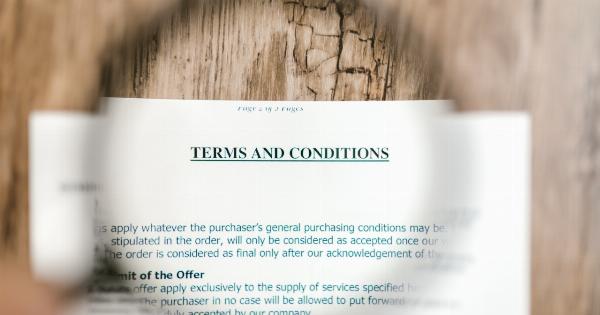Payment exemption is a crucial legal protection that safeguards individuals or organizations from certain financial obligations. It grants individuals or organizations the right to be exempted from making specific payments or fees.
Implementation of payment exemption varies across different jurisdictions and can be applicable to various situations, such as taxes, penalties, or fees. However, it is important to understand the duration of protection offered by payment exemption measures to ensure full compliance with the law and avoid any potential legal consequences.
Understanding Payment Exemption
Payment exemption is a legal provision that protects individuals or organizations from financial obligations that would otherwise be required by law.
This exemption can be temporary or permanent, depending on the specific circumstances and the governing legal framework. While payment exemption provides relief from immediate financial burdens, it is essential to know how long this protection lasts in order to manage finances appropriately and plan for the future.
The Duration of Payment Exemption
The duration of payment exemption can vary significantly depending on the specific laws and regulations in place.
It is crucial to consult the relevant legal provisions and seek professional advice to accurately determine the duration of the payment exemption in a given situation. In some cases, payment exemption measures can be time-limited, while in other instances, they may be permanent.
Temporary Payment Exemption
In certain circumstances, payment exemption may be granted temporarily, offering relief from financial obligations for a specific period.
This temporary protection can be applied to various scenarios, including tax payment extensions, deferments of fines or penalties, or waivers during economic crises. Temporary payment exemption measures are introduced to provide temporary relief to individuals or organizations facing financial difficulties or other exceptional circumstances.
Time-Limited Payment Exemption
Time-limited payment exemption refers to the specific duration in which an individual or organization is protected from making certain payments. This duration is often explicitly defined in the regulations governing the exemption.
For instance, a tax payment exemption might be applicable for a specified number of months or until a particular deadline is reached. It is crucial to be aware of these time limits to ensure compliance with the law and avoid potential penalties or legal issues.
Permanent Payment Exemption
Permanent payment exemption completely relieves an individual or organization from making specific payments or fees permanently. This exemption is usually granted to individuals or organizations that meet specific criteria defined by the law.
Permanent payment exemption can be applicable in various contexts, such as exemptions from certain taxes for qualifying non-profit organizations or permanent waivers for individuals with disabilities. Understanding the conditions for permanent payment exemption is essential to benefit from these long-term relief measures.
Seeking Legal Advice
Given the complexity and variability of payment exemption regulations, it is highly recommended to seek professional legal advice to ensure accurate interpretation and understanding of the applicable provisions.
Legal experts specializing in tax law, financial regulations, or relevant areas can provide insights into the specific duration and conditions of payment exemption measures. This guidance can help individuals and organizations take appropriate actions to comply with the law and make informed decisions regarding their financial obligations.
Monitoring Changes in Payment Exemption Laws
Payment exemption laws and regulations can change over time in response to various factors, such as economic conditions, policy changes, or amendments to relevant legislation.
It is essential to stay updated on any modifications to payment exemption measures that may affect an individual or organization’s financial obligations. Regularly monitoring changes in payment exemption laws can ensure continued compliance and help individuals or organizations adapt their financial strategies accordingly.
The Importance of Compliance
Complying with payment exemption regulations is crucial to avoid legal consequences, penalties, or fines. Failure to adhere to the specific duration or conditions of a payment exemption can result in additional financial burdens or legal proceedings.
By understanding and complying with the applicable payment exemption provisions, individuals and organizations can make the most of the relief offered and maintain a strong financial standing within the confines of the law.
Conclusion
Payment exemption measures grant individuals or organizations relief from specific financial obligations. The duration of payment exemption varies depending on the specific circumstances, legal provisions, and governing regulations.
Temporary, time-limited, and permanent payment exemptions are common categories with varying durations. It is crucial to seek professional legal advice and regularly monitor changes in payment exemption laws to ensure compliance and effectively manage financial obligations within the provided protection.





























